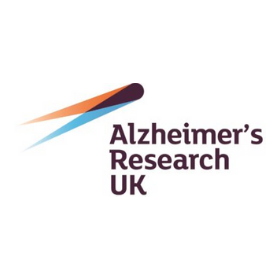 Alzheimer’s Research UK [1]’s annual conference showcased the latest dementia research findings and allowed face-to-face collaboration for the first time since the COVID-19 pandemic.
Alzheimer’s Research UK [1]’s annual conference showcased the latest dementia research findings and allowed face-to-face collaboration for the first time since the COVID-19 pandemic.
600 of our inspirational dementia researchers, all at different points in their careers, shared the work they have been doing over the past few years. Here are some of the highlights!
1. Supporting the dementia research leaders of tomorrow
The conference kicked off with a day dedicated to researchers still early on in their careers. Eight of these researchers presented their PhD work and Beth Eyre from the University of Sheffield picked up the prestigious Laura Pulford Prize for the best talk.
The day also involved workshops to inspire early career researchers to continue developing their skills and wider interests. The session, ‘Playing to your strengths in your career’ stood out for many. Dr Laura Phipps, a communications expert, led the session with two top dementia researchers, Prof Selina Wray and Dr Kamar Ameen-Ali, and Dr Sam Gibbons Frendo from Symplectic.
The discussion guided scientists to think about maximising their careers. They were challenged to think about the skills they already have, the things they value and their own personal strengths.
Hopefully this will ensure dementia research leaders of tomorrow will have a bright future and be in the best position to make the breakthroughs possible in dementia research.
2. Inspirational stories
We were very fortunate to hear from two people willing to share their personal stories with us – reinforcing why the work of our scientists is so important.
Scott Mitchell, the husband of the late national treasure Dame Barbara Windsor, opened the conference. Barbara went public with her Alzheimer’s diagnosis in 2018, leading to a spike in awareness of the disease.
Scott poignantly recalled how Barbara’s personality faded, and said: “living with someone with dementia is one of the cruellest things anyone can face”. A narrative all of the researchers in the room are working hard to change.
Claire Sweet also shared her experience of supporting her dad, who is living with behavioural variant frontotemporal dementia. This condition is one of the rarer types of dementia, and it has a huge impact upon someone’s personality. Claire openly shared how her dad, diagnosed 10 years ago, was living with a diverse set of symptoms including memory loss and compulsive behaviours.
These moving and honest accounts sent a powerful message to everyone as a reminder of why everyone there does the work they do, and why breakthroughs are urgently needed.
3. Is sleep the key to understanding dementia?
The conference was a great platform for scientists to share their research findings from the past three years in person again.
Prof Gill Livingston from University College London investigates the importance of sleep and how it links to dementia. Understanding the interplay between sleep and dementia is an area of increasing interest. As part of the conference, Prof Livingston presented work supporting the suggestion that sleep is an important risk factor for dementia.
You can find out more about what we do and don’t know, and some of the work we are funding to help answer these questions, here [2].
4. Think Gut Health!
There was a dedicated session on the gut-brain axis [3] – an emerging area of research looking at how the two organs communicate and could be implicated in dementia. Prof Yvonne Nolan presented findings, identifying links between gut bacteria, inflammation and brain changes associated with Alzheimer’s disease.
She said:
“Our findings suggest that symptoms of Alzheimer’s may, in part, be caused by abnormalities in the gastrointestinal tract. While it is currently proving difficult to directly tackle Alzheimer’s processes in the brain, the gut potentially represents an alternative target that may be easier to influence with drugs or diet changes.”
Read more about these exciting findings here [4].
5. Unpicking the complexities of frontotemporal dementia
Frontotemporal dementia affects just under 1 in 20 people living with dementia. This type of dementia has no treatment to slow or stop it, and limited options to help manage symptoms too.
In a session dedicated to a researcher the field recently lost, a number of our scientists spoke about their findings and progression towards identifying potential treatment targets.
Momentum is needed, and there is hope, with talks focussing on the first ever phase 3 trial for treatment, alongside genetic therapies in the pipeline too.
6. Can a Mediterranean diet reduce your risk of dementia?
Finally, Prof Anne Marie Minihane presented her results from a study [5] exploring whether a Mediterranean diet is beneficial for memory and thinking. Study volunteers followed this diet, high in vegetables, fruits, nuts, grains, fish, and unsaturated fats such as olive oil.
Initial findings suggest this diet pattern could positively impact cognition and reduce the risk of developing dementia in the future. However, this work still needs to be reviewed by other experts and more studies need to look at the diet and how it interacts with other known risk factors.
It was great to see everyone back together again at an event aimed at inspiring the next generation of dementia researchers and sharing the latest developments. Here’s to our 2023 conference in Aberdeen!
If you’re a researcher and want to find out more about the 2023 conference you can do here [6].